Difference between revisions of "Flamingo effect"
| (One intermediate revision by one user not shown) | |||
| Line 4: | Line 4: | ||
| − | " | + | The "flamingo effect" is a rare phenomenon occurring on [[finish|pigmented]], light [[smooth leather]]. When it first appears, the surface colour becomes pink but only in concealed areas (contact surfaces of the pads pressed against each other on the grain side). Also, it only seems to occur when two grain sides of leather rub against one another. Darkness alone does not trigger this problem. Please see the photo below. |
| Line 11: | Line 11: | ||
</p> | </p> | ||
<p align=center> | <p align=center> | ||
| − | ''The discolorations | + | ''The discolorations may not be immediately recognisable, but they are disturbing. Usually, this happens on relatively new furniture.''<br></p> |
<p> </p> | <p> </p> | ||
| − | The [[finish|surface pigmentation]] of the leather then becomes reddish or pinkish. | + | The [[finish|surface pigmentation]] of the leather then becomes reddish or pinkish. In extremely rare cases, yellowish discolourations can also develop. The reason for this colour change has not been fully clarified. So far, this phenomenon has happened to furniture leather and within the first couple of years after the purchase. It also occurs when the leather is in [[Storage of leather|storage]] and the [[Leather grain - Grain side|grain sides]] are in direct contact. |
| Line 30: | Line 30: | ||
<p> </p> | <p> </p> | ||
| − | An explanation for this phenomenon may be a change in the [[leather colour|pigment colour]] or a [[Colour migration|bleeding of dyes]] from the leather into the [[finish|surface pigmentation]]. There is no valid explanation why only contact areas of the [[Leather grain - Grain side|grain side]] are affected and not | + | An explanation for this phenomenon may be a change in the [[leather colour|pigment colour]] or a [[Colour migration|bleeding of dyes]] from the leather into the [[finish|surface pigmentation]]. There is no valid explanation why only contact areas of the [[Leather grain - Grain side|grain side]] are affected and not on all leather. |
<p align=center> | <p align=center> | ||
| − | [[bild:Xenon-Test-Leder-01.jpg| | + | [[bild:Xenon-Test-Leder-01.jpg|500px]] |
| − | + | ||
</p> | </p> | ||
<p align=center> | <p align=center> | ||
| − | 'The [[leather quality#Test equipment|xenon test]] shows that reddish discolouration is significantly [[Colour fastness - Light fastness of leather|reduced by UV irradiation]].''<br></p> | + | [[bild:Xenon-Test-Leder-02.jpg|500px]] |
| + | </p> | ||
| + | <p align=center> | ||
| + | ''The [[leather quality#Test equipment|xenon test]] shows that reddish discolouration is significantly [[Colour fastness - Light fastness of leather|reduced by UV irradiation]].''<br></p> | ||
<p> </p> | <p> </p> | ||
| − | + | Currently, the only solutions are to replace the leather or to bleach it by UV light. For the replacement option, avoid using the same leather, otherwise the flamingo effect will reappear. | |
| − | + | ||
| − | + | ||
| − | + | ||
Latest revision as of 19:13, 16 September 2022
The "flamingo effect" is a rare phenomenon occurring on pigmented, light smooth leather. When it first appears, the surface colour becomes pink but only in concealed areas (contact surfaces of the pads pressed against each other on the grain side). Also, it only seems to occur when two grain sides of leather rub against one another. Darkness alone does not trigger this problem. Please see the photo below.
The discolorations may not be immediately recognisable, but they are disturbing. Usually, this happens on relatively new furniture.
The surface pigmentation of the leather then becomes reddish or pinkish. In extremely rare cases, yellowish discolourations can also develop. The reason for this colour change has not been fully clarified. So far, this phenomenon has happened to furniture leather and within the first couple of years after the purchase. It also occurs when the leather is in storage and the grain sides are in direct contact.
After extended storage of folded leather, the light-coloured leather becomes reddish in the contact area of the pigmentation.
An explanation for this phenomenon may be a change in the pigment colour or a bleeding of dyes from the leather into the surface pigmentation. There is no valid explanation why only contact areas of the grain side are affected and not on all leather.
The xenon test shows that reddish discolouration is significantly reduced by UV irradiation.
Currently, the only solutions are to replace the leather or to bleach it by UV light. For the replacement option, avoid using the same leather, otherwise the flamingo effect will reappear.
Other leather damages
- Typical leather damages such as aging, fading, fat stains, jeans discoloration etc.
- Dye transfer from leather
- Typical damage to PU leather in the furniture area
- Bronzing: Metallic glimmer on new leather
- Glue migration from the back side to the visible side of the leather
- Mouldy leather
- Fatty spue - Fat marks on leather
Additional information







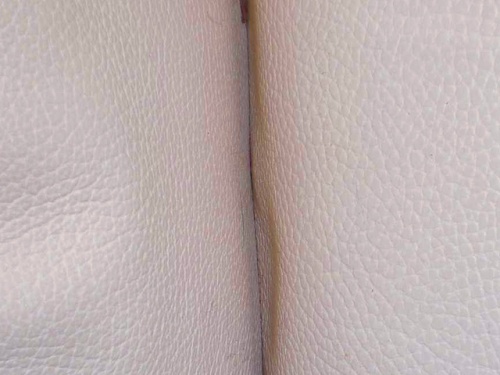
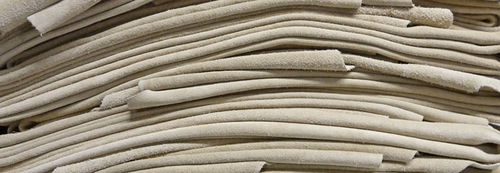
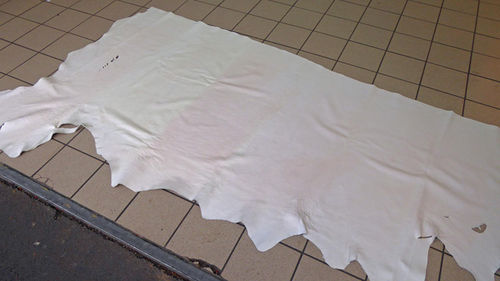
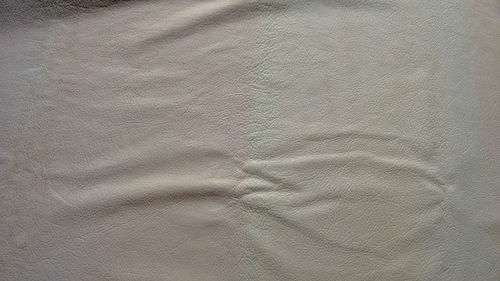
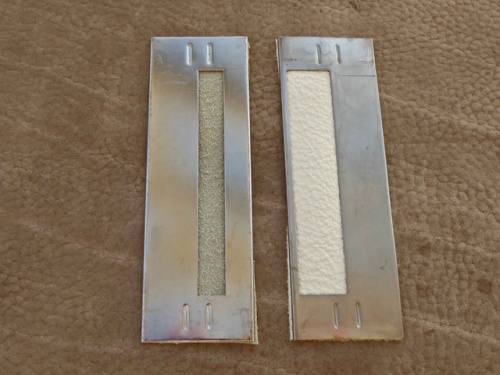
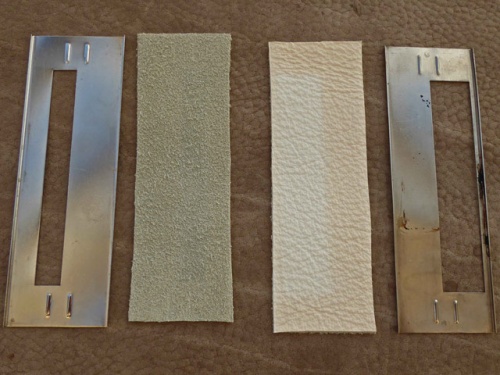

 a kotori web solution
a kotori web solution